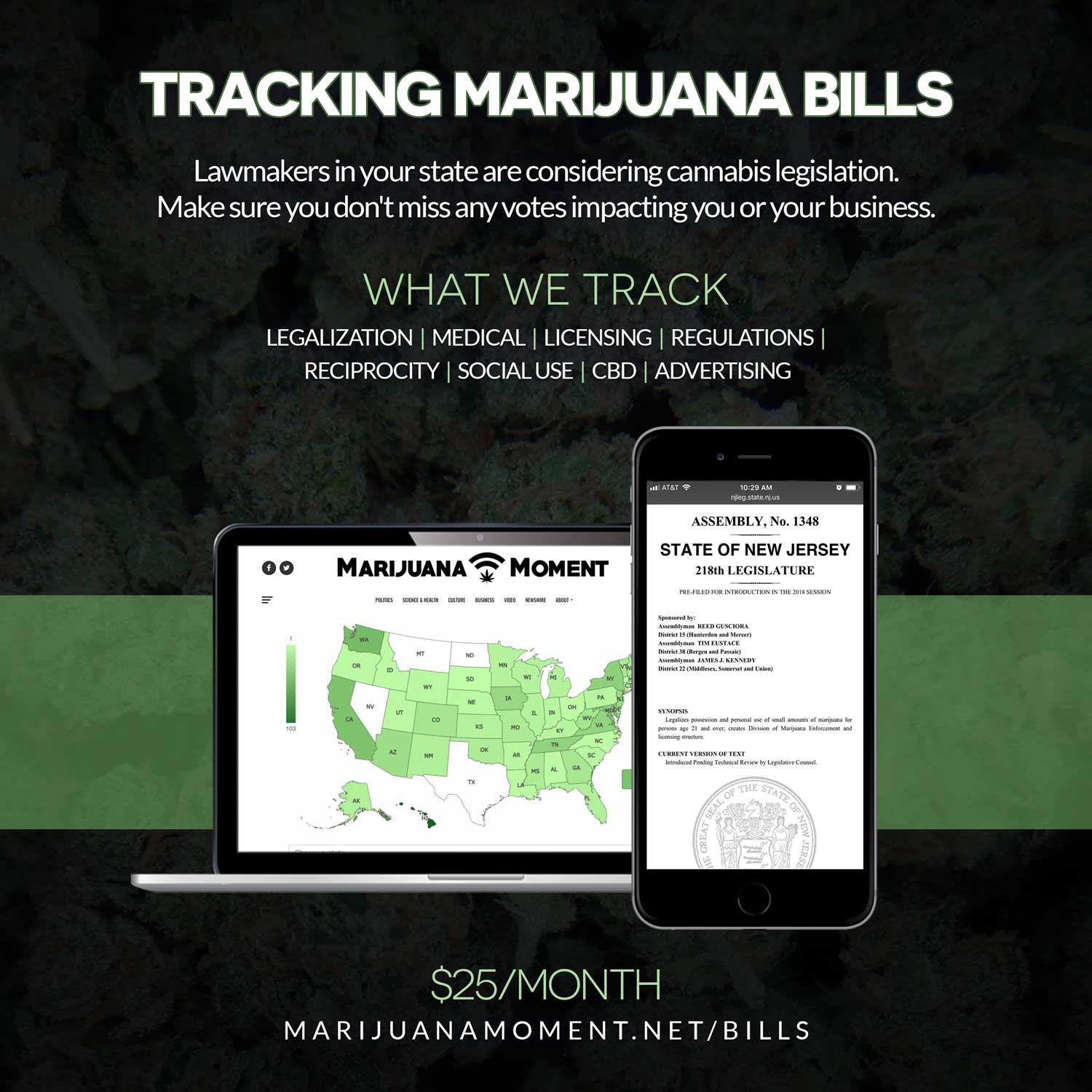As German lawmaker prepare to vote on a revised marijuana legalization bill next week, the country’s health minister defended the reform against critics in the legislature, while briefly outlining next steps for a commercial sales pilot program. Meanwhile, one German state is signaling that it will pursue legal action to block the reform from taking effect within its borders.
At a meeting before the Bundestag on Wednesday, Health Minister Karl Lauterbach took a series of questions from members, some of whom oppose legalization and others who expressed interest in expeditiously enacting the reform.
At several points, he pushed back against lawmakers who suggested that legalization would send the wrong message to youth and lead to increased underage consumption, saying their arguments “misrepresented” the legislation, according to a translation.
“The fact remains that child and youth protection is carried out through education, and sales to children and young people remain prohibited,” Lauterbach said. “That is the only change we have made in this area: a tightening.”
“As part of this legalization, we are pushing back the black market,” he said. “The less of the black market there is, the lower the risk that our children will be brought into consumption through the black market.”
Another member asked the health official about the second part of the government’s legalization plan. While the bill that’s heading for a vote next week would legalize adult use and cultivation, while establishing social clubs that could distribute cannabis to members, less is known about the path forward for the “second pillar” of creating a commercial sales pilot program.
Asked about the timeline for that component, Lauterbach said “we are currently examining” the details of the forthcoming plan.
He said that federal agencies that would be involved in the commercial sales pilot program have been sent questions to inform the next steps and they are “currently preparing them.”
“The schedule set for next year appears to be achievable at this point,” he said.
When it comes to the more immediate legalization and social club legislation, the expectation is that the Bundestag will pass it, about two weeks after an initial vote was postponed to the disappointment of advocates.
The Bundesrat, a separate legislative body that represents German states, hasn’t approached the proposal with as much favor, however. Members of the Bundesrat tried to block the proposed reform in September but ultimately failed.
Now the state of Bavaria says that it intends to mount a legal challenge to block the reform in its jurisdiction, Bayerischer Rundfunk reported.
Bavarian Health Minister Judith Gerlach said “we will definitely examine legally…whether we can still legally defend ourselves against it.”
If legalization takes effect, Bavarian officials will interpret its provisions “as restrictively as possible,” she said.
The legalization bill that’s advancing was recently revised by the so-called traffic light coalition, with most of the amendments designed to loosen restrictions that faced opposition from advocates and pro-legalization legislators.
For example, possessing slightly more cannabis than the allowable amount will not be automatically treated as a criminal offense punishable by jail time. Instead, possession of between 25 and 30 grams will be considered an administrative violation.
Similarly, the possession limit for home grown marijuana will be increased from 25 to 50 grams, with the same administrative violation stipulation applied to possession of between 50 and 60 grams.
—Marijuana Moment is tracking more than 1,000 cannabis, psychedelics and drug policy bills in state legislatures and Congress this year. Patreon supporters pledging at least $25/month get access to our interactive maps, charts and hearing calendar so they don’t miss any developments.Learn more about our marijuana bill tracker and become a supporter on Patreon to get access.—
Lawmakers in the Bundestag recently held a hearing in the Health Committee, at which opponents criticized some elements of the proposal. The body also heard a competing policy proposal from The Union, a political alliance of the Christian Democratic Union and Christian Social Union (CDU/CSU), that would not legalize marijuana but instead “improve health protection and strengthen education, prevention and research,” Kirsten Kappert-Gonther, a Green Party lawmaker who supports cannabis reform, said at the time.
Germany’s Federal Cabinet approved the initial framework for a legalization measure late last year, but the government wanted to get sign-off from the EU to ensure that enacting the reform wouldn’t put them in violation of their international obligations.
The framework was the product of months of review and negotiations within the German administration and the traffic light coalition government. Officials took a first step toward legalization last summer, kicking off a series of hearings meant to help inform legislation to end prohibition in the country.
Government officials from multiple countries, including the U.S., also met in Germany last week to discuss international marijuana policy issues as the host nation works to enact legalization.
A group of German lawmakers, as well as Narcotics Drugs Commissioner Burkhard Blienert, separately visited the U.S. and toured California cannabis businesses last year to inform their country’s approach to legalization.
The visit came about two months after top officials from Germany, Luxembourg, Malta and the Netherlands held a first-of-its-kind meeting to discuss plans and challenges associated with recreational marijuana legalization.
Leaders of the coalition government said in 2021 that they had reached an agreement to end cannabis prohibition and enact regulations for a legal industry, and they first previewed certain details of that plan last year.
A novel international survey that was released last year found majority support for legalization in several key European countries, including Germany.
Read More Feedzy

